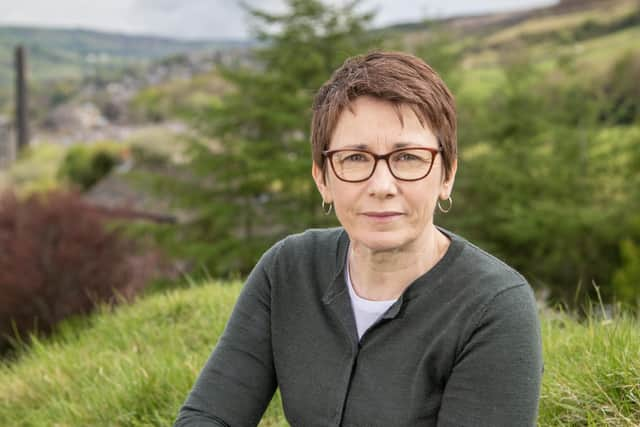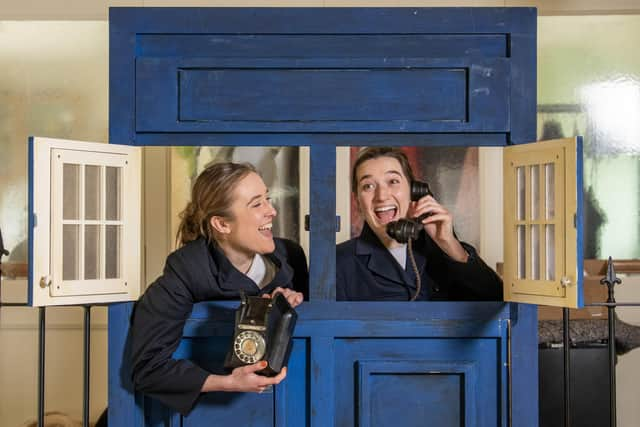Meet Amanda Whittington the playwright shining a light on policewomen in the 1950s


When we speak Amanda Whittington is about to start rehearsals for her new play, A Force to Be Reckoned With, commissioned by Mikron. It is the second time she has worked with the Marsden-based theatre company, following their hugely successful collaboration on Atlanta Forever, about the early days of women’s football, in 2021.
The new production explores the story of the pioneering women of the British police force. “It is more Heartbeat than Happy Valley,” says Whittington. “It takes a light-hearted look at the lives of women police constables in the 1950s. The script is pretty much done but there will be some tweaking during rehearsals. I have been working on it for over a year now and I am really looking forward to getting stuck in with the actors and working on it together.”
Advertisement
Hide AdAdvertisement
Hide AdThere is a kind of purity about the shows that Mikron stage – it is theatre absolutely stripped back to its bare essentials. The company famously tour by narrowboat to a wide range of venues around the UK – they have performed everywhere from allotments to pubs, youth hostels to lifeboat stations. The set is minimal, there is often no lighting or amplification – the play has to be able to stand up on its own and keep people’s attention in non-traditional theatre spaces or in the open air; for a writer that brings with it some interesting challenges.


“It is deceptively simple what Mikron do, but when you sit down to write for them, you realise how hard it is,” says Whittington. “It is all about the story and making it as direct and engaging as you can for the audience, moment to moment. I felt for me it really sharpened my storytelling instincts.”
The idea for A Force to be Reckoned With came to Whittington when she spotted a meme on Twitter that featured a newspaper cutting from the 1930s with the headline ‘Hefty Girls Wanted for Police Force’.
The potential recruits, it said, should have ‘brains plus a good physique’ and must be ‘fairly good-looking’; underneath there was also a capitalised warning stating that ‘they must never marry or their careers will end.’
Advertisement
Hide AdAdvertisement
Hide Ad“I have written lots of plays about women in the 20th century and my attention is always going to be grabbed by something like that,” says Whittington. “It made me laugh but I was also intrigued. I didn’t really know anything very much about the history of women in the police – and once I started looking into it, I soon realised that there was much more going on in the journey to where women are now in the force than I had appreciated. Going right back to the First World War there was a volunteer force of women who were basically policing the morality of other women in wartime – I read about women doing surveillance work at that time. Then in the Second World War, the Women’s Auxiliary Police force emerged and that formed the basis of the 1950s force when women were able to join in a professional capacity.”
It is at this point in the timeline that A Force To Be Reckoned With is positioned. Whittington’s two central characters are newly qualified WPCs Iris Armstrong and Ruby Roberts who discover that far from being out on the beat, as they expect, most of their time is initially spent at the station making cups of tea and typing. Then they are assigned to cases involving women and children, which soon turns into a specialist role.
“In the 1950s women employed in the police force were syphoned off to do work mostly with women and children because that was what they were seen to be best at doing,” says Whittington. “But that became a sort of specialism – in a way they were at the forefront of what we would now call safeguarding and child protection. So, they were pioneering not only in terms of equality and representation but also in the specifics of the work they were doing.”
One of the most widely performed playwrights in the country, Whittington has written over 40 plays including Be My Baby, The Thrill of Love, Mighty Atoms and Kiss Me Quickstep and is probably best known for her Ladies Day trilogy.
Advertisement
Hide AdAdvertisement
Hide AdBorn in Nottingham, she was a freelance journalist before taking up playwriting in her twenties, with her first full-length production, Be My Baby, being staged at London’s Pleasance Theatre in 1998. Set in a mother and baby home in 1964, it focussed on a group of four unmarried teenage mothers, sent there to hide them from society while their pregnancy progressed and whose babies were then forcibly given up for adoption. The play also featured songs of the period, including the Ronettes hit of the title.
“The subject matter was something that fascinated me,” she says. “I had heard my mother talking about those homes and I was intrigued by that secret world and the taboos surrounding it. I didn’t write Be My Baby as a political play but actually putting a cast of all-female characters on stage was quite a political thing to do, it turns out.”
All her work since has featured well-rounded female characters telling powerful, relatable women’s stories.
“When I first started in my mid-twenties, I began writing stories that had women at the centre of them, because they were interesting to me as a young woman. At the time, I thought it wasn’t unusual but as I got to know the industry more, I realised that actually it was – and then it became a conscious choice because I felt those stories needed to be told. Over the years there has been a greater understanding of the need for a diversity of voices and thankfully now there are a lot more plays being commissioned to ensure that we hear those voices – but it wasn’t always like that in theatre.”
Advertisement
Hide AdAdvertisement
Hide AdHer plays feature on both the GCSE and A level English Literature and Theatre Studies and are very popular with amateur theatre companies which generally have more female than male actors. “I think the fact that my plays have good leading roles for women is why they do so well on the amateur circuit,” she says. “It is a sector that often gets overlooked but it has been instrumental in keeping my career going and I feel it is such an important part of our theatre ecology.”
Whittington says that she has been “thrilled” to work with Mikron again on A Force to be Reckoned With and she has had a lot of fun channelling some of the ground-breaking female-led TV cop shows that she grew up with – such as The Gentle Touch, Juliet Bravo and, especially, Cagney and Lacey. “Although my play is set in a completely different era and context, I really wanted to get that buddy dynamic in there,” she says. “I think audiences respond to that; hopefully we will put it off.”
A Force to be Reckoned With opens at Marsden Mechanics Hall, Huddersfield today, then tours until September. Yorkshire dates: Maurice Dobson Museum & Heritage Centre, Barnsley, May 16; Wetherby Whaler, Guiseley, May 18; Lawrence Batley Theatre Courtyard, July 6; Clements Hall, York, September 17.